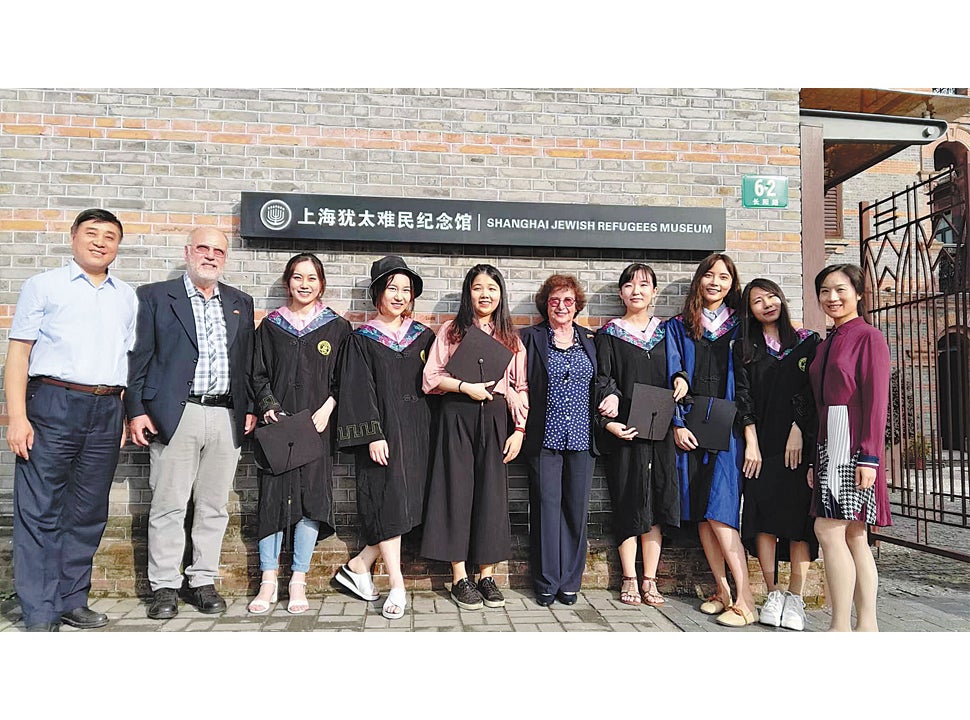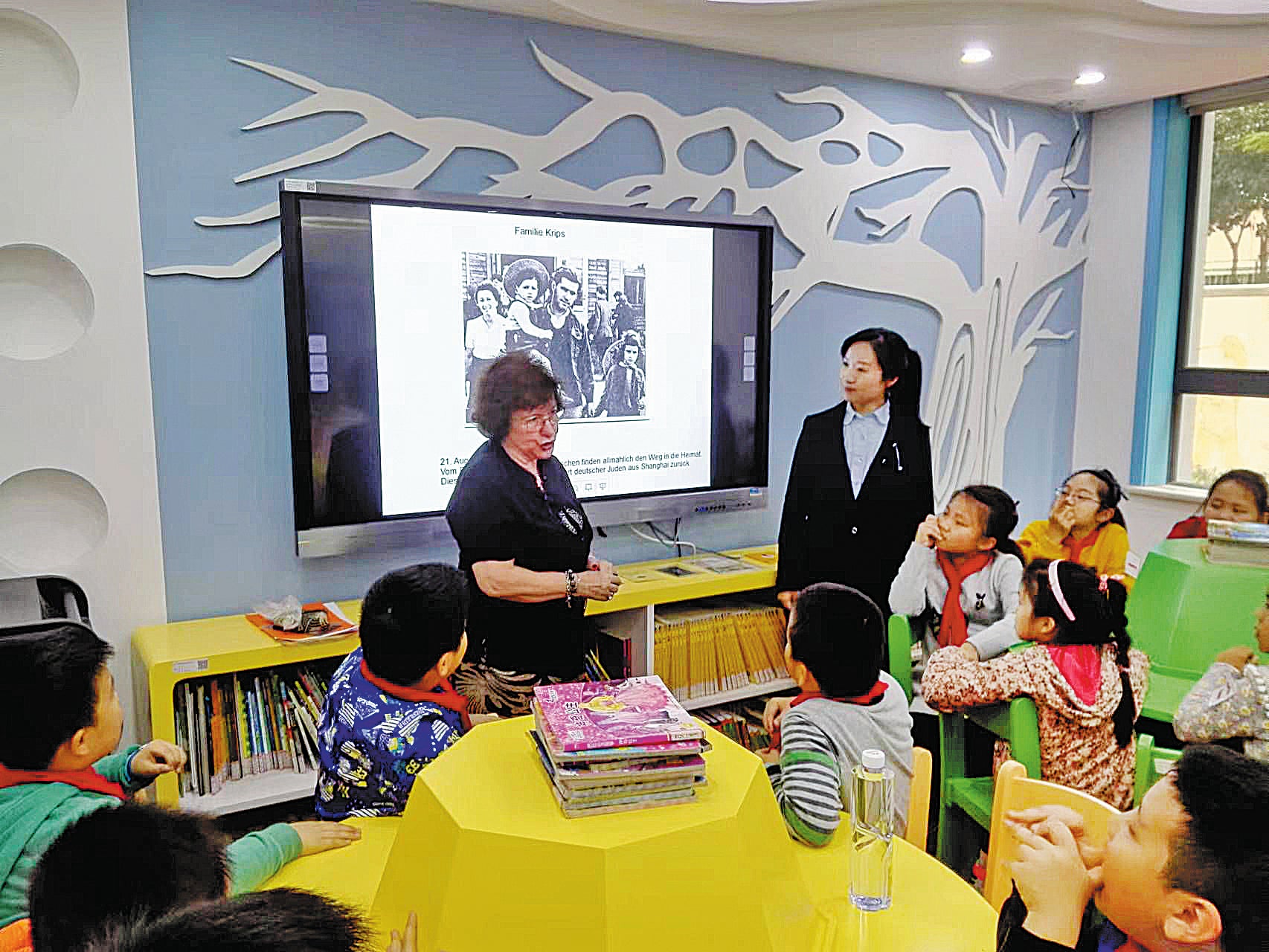Shanghai refugee book author honoured
THE ARTICLES ON THESE PAGES ARE PRODUCED BY CHINA DAILY, WHICH TAKES SOLE RESPONSIBILITY FOR THE CONTENTS

An author of a book highlighting Shanghai’s role in providing refuge and looking after Jewish wartime refugees has won a major honour.
More than 400 babies were born to Jewish refugee parents in Shanghai during the Second World War. The unique childhood experience of these “Shanghai babies” made such an impact on their lives that one of them, Sonja Mühlberger, committed herself to researching Jewish refugees in China.
Mühlberger, 83, who lives in Berlin, has spent decades building a database of Jewish refugees in Shanghai. The efforts developed into the Wall of Names of Jewish Refugees in Shanghai during the 1930s and 1940s, a permanent installation at the Shanghai Jewish Refugees Museum.
On May 31, Mühlberger was the recipient of the honorary title of Ambassador of Silk Road Friendship along with 11 others. The online event, the second such ceremony, was jointly hosted by the China International Culture Exchange Centre and Global People magazine, to present stories of friendship between China and countries involved in the Belt and Road Initiative, and spread a message of peace and solidarity between nations.
The book, Exil Shanghai 1938-1947, co-authored by Mühlberger, Georg Armbrüster and Michael Kohlstruck, was published in 2000.
In 2019 Mühlberger was awarded the Federal Cross of Merit by the German president because of her outstanding contributions to the preservation of the history of the Holocaust.
There has been a lot of debate in the academic world over the narrative about Jewish exiles in China, and the exact number during the Second World War, says Chen Jian, director of Shanghai Jewish Refugees Museum, explaining the importance of the installation of the wall of names. Real people with names that can be tracked down are solid evidence that depicts the truth.
In 2014, when the wall was established in the museum, there were more than 13,000 names, and in 2020, when the museum was refurbished and the wall rebuilt, the number of names had risen to 18,578, Chen says. The number keeps growing, Mühlberger said, “because we still have information coming in from all over the world”.

As a teacher, writer and lecturer, Mühlberger has been telling the stories of how more than 20,000 Jewish refugees found a home in Shanghai. It is important to keep telling them, because “new Nazis are emerging, and it is necessary to stand up to them”, she said during an online conference with the media in Shanghai.
Her parents Hermann and Ilse Krips met each other in Frankfurt. In 1938 Hermann Krips was sent to the Dachau concentration camp for four weeks, until Ilse got him released by obtaining exit papers. In March 1939 they boarded one of the last ships to take refugees to Shanghai, arriving in the city in April. Sonja was born six months later.
All through the rest of his life, her father “never forgot how people were reduced to numbers in the camp,” Mühlberger said. “He believed people should be named.”
Growing up in the Hongkou ghetto, an area designated for Jewish people by the Japanese occupiers, Sonja was a lively girl who “never forgot anything”. She recalled her mother reading her the German fairy tale of Snow White. When it snowed one day, her father gathered the snow from the roof and put it in a basin so she could play with it. Many historical documents were kept in the family, such as her parents’ boat tickets to Shanghai, her vaccination card and other items, which all became important elements for her book.
Her brother was only two when they left Shanghai in 1947, and he once asked about his sister’s passion for Shanghai and China. Still calling herself a Shanghainese, given that it is where she was born, Mühlberger has made nine trips to the city since 1998.
Previously published on Chinadaily.com.cn
